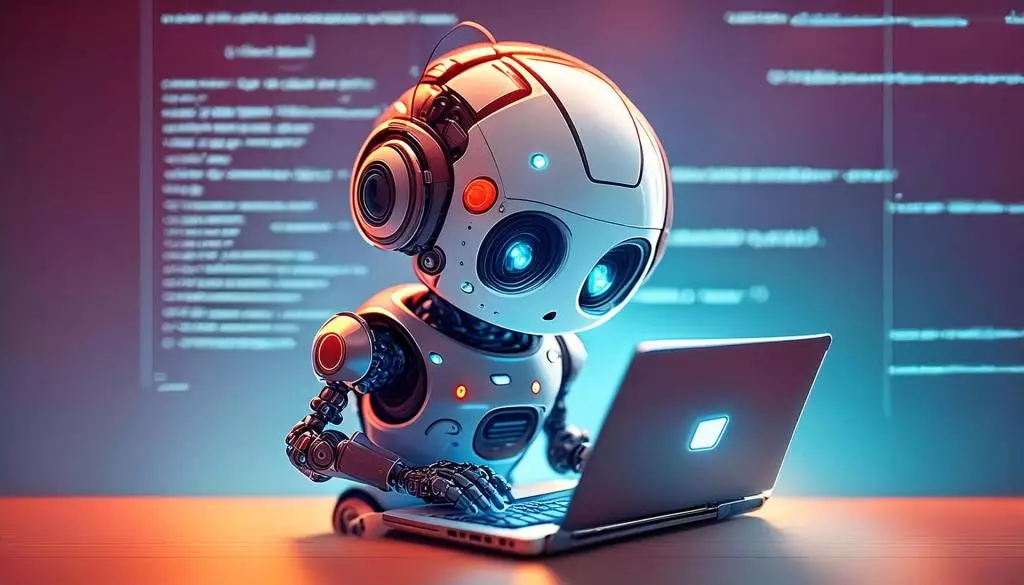Over the past few years, the programming landscape has witnessed an unprecedented transformation, primarily fueled by advancements in artificial intelligence. With the introduction of sophisticated tools that augment coding capabilities, software development is becoming more accessible and efficient. As the demand for seamless integration of technology in everyday tasks grows, tech giants are racing to provide innovative solutions. Among these, autonomous coding agents emerge as revolutionary companions for developers, enhancing productivity and streamlining workflows.
Google’s Game-Changing Innovation: Meet Jules
In a remarkable move, Google has been at the forefront of this revolution with the introduction of Jules, its autonomous coding agent designed to address the challenges of bug fixing and code maintenance. Initially launched in December as an experimental tool, Jules gained momentum with its beta release showcased during Google I/O. This strategic maneuver positions Google to contend effectively with a burgeoning array of AI-powered coding assistants, such as OpenAI’s Codex and GitHub Copilot.
Josh Woodward, Google’s vice president of Google Labs, emphasized Jules’ ability to operate asynchronously, allowing developers to delegate mundane coding tasks and focus on more critical innovations. By integrating Jules into platforms like GitHub and harnessing the power of Gemini 2.5 Pro, developers are encouraged to experiment with this technology without financial constraints during its public beta testing phase.
A New Age of Asynchronous Coding
What is particularly intriguing about Jules is its capability to work independently—developers can assign it tasks which it executes in the background within a secure virtual environment. This operational model embodies a shift towards asynchronous coding, where complex codebases are managed alongside simultaneous coding efforts. As coding becomes less about writing lines of code and more about directing an intelligent agent, the potential for innovation skyrockets. The implications for increased efficiency are monumental; engineers can use their cognitive resources on problem-solving and creative duties rather than repetitive coding chores.
Jules isn’t navigating this new territory alone; it faces stiff competition from OpenAI’s Codex, which has evolved from a fundamental coding model to a fully functional coding agent. With capabilities to write, debug, and answer inquiries about codebases, Codex offers developers a powerful ally. Additionally, GitHub Copilot is making waves, as it adopts many of the same principles of asynchronous task management, effectively making the coding process collaborative even in remote working environments.
The Vibe Coding Phenomenon
The rise of “vibe coding,” where applications are generated through prompts rather than traditional coding practices, underscores a necessary evolution in software development. This approach democratizes coding, offering enthusiasts and aspiring developers the chance to create robust applications without needing a technical background. As insights from technology leaders reveal, this change is reflective of a broader shift in how software and applications are constructed—leaning heavily on user-driven interactions and AI-enabled interfaces.
As big technology firms like Google and OpenAI step into this arena, the spotlight on coding agents intensifies. For Google, this strategy encompasses a broader ecosystem that includes not only Jules but also other tools like Firebase, designed to empower non-coders in app development. Firebase presents a compelling solution with features that allow users to build applications effortlessly while integrating AI capabilities.
The Competitive Landscape and Future Outlook
The current arms race in AI-powered coding agents fosters a vibrant community of developers eager to explore new tools. Conversations on social media and tech forums buzz with anticipation as industry professionals await the full potential of these platforms. The introduction of platforms like Firebase, integrated with advanced AI features, exemplifies how tech companies are responding to the demand for easily accessible coding solutions for a wider population.
Yet, despite this exciting era of learning, the question arises: how will these technologies affect the developer job market? As tasks traditionally reserved for programmers shift towards AI-driven solutions, there’s a palpable uncertainty. However, history shows that as technology advances, new roles emerge, requiring a blend of technical proficiency and the ability to collaborate effectively with AI systems.
In this dynamic environment, the necessity for continuous learning and adaptation is paramount. Developers must embrace these changes and leverage the power of AI coding agents to their advantage, fostering a future where creativity and innovation thrive in harmony with technological advancements.


Leave a Reply